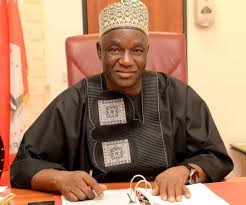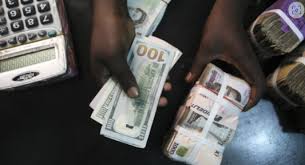Ramadan: How to read the entire Quran

It’s that time of year again when I find so much beauty and sense. Ramadan 2021, the 9th month of the Islamic calendar, began today, Tuesday, April 13th, 2021. (Hijri 1440).
Ramadan is much more to me than just fasting from dusk to dawn or feasting during Iftar.
It’s a time when I try to improve my Taqwa/Iman, become more charitable, and improve my knowledge of the Holy Qur’an, but it’s also a time when I try to get closer to Allah.
Many of us who celebrate Ramadan go on journeys during this time of year, and this Ramadan I’d like to go on a journey to figure out how I can get the most out of the opportunity Ramadan provides me, and I’d like to invite anyone who wants to join me on this journey to make this Ramadan one of great triumph and blessings.
This year, as always, I want to place a high emphasis on learning and understanding the true contents and message of the Qur’an during my Ramadan journey.
The reward for memorizing and completing the Qur’an is enormous. “The Messenger of Allah (SAW) was the most generous soul, and He would be at his most generous in Ramadan because Jibril would come to him every night and study the Qur’an with him,” Ibn ‘Abbas relates.
“Jibril used to rewrite the Qur’an with me once a year…” the Prophet (SAW) told Fatima in the last year of his life, according to Bukhari. This Ramadan, I plan to finish reciting the Holy Quran as part of my journey.
During Ramadan, there are two options for finishing the Quran:
The Quran is approximately 600 pages long. If you break it into 30 days, you’ll end up with 20 pages a day. For others, this may be difficult to do. Reciting it becomes simpler if it is divided into five daily prayers.
In addition, I’d like to focus on which aspects of my life, such as my routine, attitude, personality, or behavior, I need to change, and what my plans are for improving and getting myself closer to the Islamic norm.
For me, being as charitable as possible is a vital aspect of this path. Where possible, I will open my purse and offer charity whenever I see people in pain and poverty, whenever my eyes well up with tears at the sight of senseless killings, kidnappings, abuses, blown up bodies, destruction, and displacement of innocent people.
I’ll remember to give up some of my necessities to help those who are in greater need than I am. I’ll also choose not to waste money on frivolous items and luxuries so that my charity can support people who are in greater need than my family and me.
Insha Allah, after praying Ishaa and Taraweeh, I will sleep early and go to bed with the simple and conscious intention of fasting the next day. Then, well before Suhur time, I’ll thank Allah for giving me life, and then I’ll make a special Du’aa for Allah’s mercy on our Ummah.
READ ALSO: Organization commends SMEDAN DG over rural healthcare intervention
I’m going to try not to sleep after Fajr for the whole month of Ramadan and instead study the Qur’an. I’ll go to bed with the hope of waking up early for Tahajjud prayers during the last ten days of Ramadan. For the entire month of Ramadan, I will find time to rewrite and re-learn the Surahs and Aayaat that I already know.
If that’s over, I’ll try to learn one Aayah a day from a Surah I’m not familiar with.
I will be extra kind, understanding, welcoming, considerate, and supportive to my non-Muslim friends and neighbors, insha Allah. I’ll pay attention to them, bring them along, and find ways to include them in Ramadan’s blessings by sharing my food and gifts with them.
I’ll talk to myself about my erratic behavior and try to calm down. I will make every effort to forgive those who have wronged my family and community, and I will purge my heart of hatred, mistrust, and resentment. And I’ll spend a lot of time praying to calm down my raging temper.
For the full duration of Ramadan, I will kick at least one of my bad habits and make a special effort to speak only to add value and to say only what is meaningful and useful. When I do not have anything useful to talk about, I will remember Allah SubhaanahuwaTa’aala through the beautiful and peaceful words taught by the Rasul (SAW), while paying attention to their meanings and feeling the impact of the words in my heart, my mind, my thoughts and my attitude.
Ramadan is a spiritual cleansing month not only for the soul but also for the body. It is said in a Hadith that the Prophet (SAW) said we should leave 1/3 of our stomach for water, 1/3 for air, and 1/3 for food.
Therefore, this Ramadan, in addition to my spiritual journey, I will be going on a health and weight loss one as well. While I embrace Ramadan for its spiritual benefits and all the positives that it represents, it really is an excellent opportunity to shed some extra weight. It can be very tempting to devour anything and everything edible during Iftar, but the tendency of this is putting on more weight than one had to begin with and becoming unhealthier.
When we fast, we are already resetting our metabolism by the protracted, long overnight fast, as well as the daily fasting. Our metabolism resets and our body begins to change the way it operates. There is no need to consume excess food at Iftar, dinner or Suhoor, but we usually do. And when we do that, our body thinks it is in a state of famine and will store everything we eat as fat, because it is worried about food supply.
Furthermore, eating once a day scares our body and our body starts to shut down and slow down our metabolism. A diet that is less than a normal amount of food intake but balanced is sufficient enough to keep us healthy and active during the month of Ramadan.
I know for me personally, each Ramadan in the past, I have always had a tendency to over eat during Iftar. But this year, I want to be disciplined, eat healthy, eat slowly, and practice constraint by ensuring my diet consists of low fat food. Without a doubt restricting meals to low fat food for thirty days will make anyone loose weight, no matter how slow their metabolism is.
I know Ramadan is not about losing weight, but I would like to use this opportunity, to address my issue of gluttony and use control and constraint on what I eat.
However, while Ramadan is an excellent opportunity for overweight people to lose weight, please note that underweight or marginally normal weight people are discouraged from losing weight during Ramadan.
If, like me, you have decided to make this a meaningful and triumphant Ramadan by moving closer to Allah and identifying areas requiring improvement in your life, may Allah SubhaanahuwaTa’aala assist you and bless you for taking this step in your life.
If one can succeed this Ramadan in living as planned by the true tenants of the Quran, one will be able to look back and rejoice and feel inner joy and true happiness knowing that their Eid day will be the day of celebrating rewards from Allah SubhanahuwaTa’aala.
As we begin this journey for Ramadan 2021, I wish each and every person welcoming this Ramadan a blessed, fruitful, safe and peaceful month.
Ramadan Kareem and Ramadan Mubarak!










